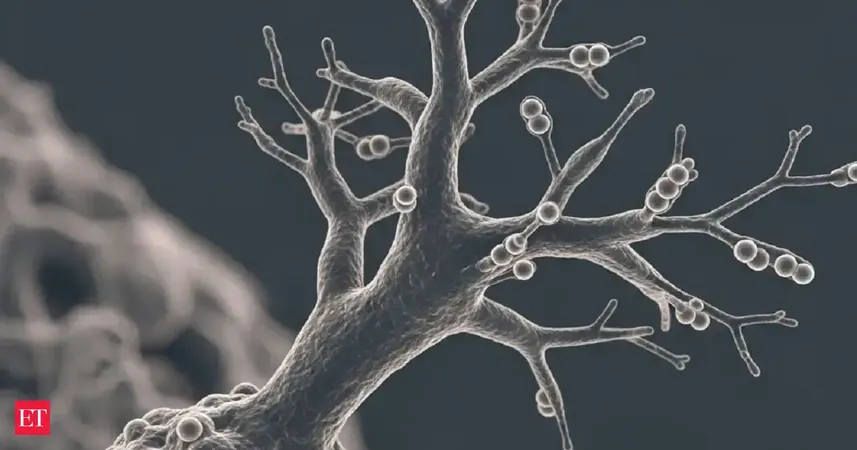
Revolutionizing Robotics: How AI Agents in Video Games Could Transform Our Future
2025-05-01
Author: Sophie
The Gaming Frontier: A New Era for AI Development
Video games have long been a catalyst for artificial intelligence innovation. From early machine learning demos to breakthroughs like Google DeepMind's prowess in 'Starcraft 2', gaming has proven that machines can not only participate but excel in arenas once dominated by humans.
At this year's Game Developer's Conference, DeepMind showcased its latest groundbreaking project: Scalable Instructable Multiworld Agents (SIMA). This pioneering technology allows AI to traverse complex 3D video game worlds, learning to adapt and perform tasks across diverse environments with distinct rules.
Gaming: The Ultimate AI Playground
Video games serve as ideal testing grounds for AI due to their endless variety of challenges. Players often solve these challenges using a consistent toolkit, akin to how AI agents select from predefined options to navigate obstacles.
These immersive game worlds enable researchers to explore subtle changes in behavior and decision-making at minimal costs, reflecting potential real-world applications.
DeepMind’s SIMAs impressed many by mastering nine different games, ranging from 'No Man’s Sky' to 'Goat Simulator', using everyday language commands like 'pick up the key' and 'move to the blue building.' Remarkably, the agents exhibited strong transferable learning abilities, outperforming specialized models in untrained scenarios.
Bridging the Digital and Physical Worlds
Given the rapid advancements in robotics, the use of AI in gaming could revolutionize physical robots' capabilities. Although high training costs today limit robot deployment mainly to large corporations, gaming simulations could significantly reduce these expenses.
Imagine a robot adept at warehouse tasks applying its skills to construction — a seamless transition that was exemplified by OpenAI's Dactyl, which learned to solve a Rubik’s Cube in a virtual setting before tackling real-world challenges.
Companies like Nvidia are innovating with platforms designed to teach robots to 'learn how to learn,' setting the stage for smarter, more versatile machines.
The Rise of Affordable Robots
AI-assisted robots are gradually entering sectors like healthcare, agriculture, and logistics. However, these robots often come with hefty price tags, relegating them to companies with substantial budgets.
Encouragingly, the future looks brighter with more affordable robots on the horizon. Tesla's plans to produce thousands of Optimus robots and Unitree's introduction of a multifunctional humanoid robot priced at $16,000 could make this technology accessible to a broader audience.
The Path to Artificial General Intelligence (AGI)
Nearly three decades ago, computers first outwitted humans in chess, but few anticipated a time when machines could dominate across multiple games. This emerging ability to generalize knowledge could mark a significant turning point in AI.
The advancements demonstrated by SIMAs indicate we may be closer to achieving artificial general intelligence (AGI), as they build competencies applicable to solving diverse challenges. Major players like Google, OpenAI, and Microsoft are openly pursuing AGI, and video games could prove essential in this quest.
As we look toward a future brimming with potential, the intersection of gaming, AI, and robotics may hold the key to creating intelligent machines that can adapt to and thrive in our complex world.









 Brasil (PT)
Brasil (PT)
 Canada (EN)
Canada (EN)
 Chile (ES)
Chile (ES)
 Česko (CS)
Česko (CS)
 대한민국 (KO)
대한민국 (KO)
 España (ES)
España (ES)
 France (FR)
France (FR)
 Hong Kong (EN)
Hong Kong (EN)
 Italia (IT)
Italia (IT)
 日本 (JA)
日本 (JA)
 Magyarország (HU)
Magyarország (HU)
 Norge (NO)
Norge (NO)
 Polska (PL)
Polska (PL)
 Schweiz (DE)
Schweiz (DE)
 Singapore (EN)
Singapore (EN)
 Sverige (SV)
Sverige (SV)
 Suomi (FI)
Suomi (FI)
 Türkiye (TR)
Türkiye (TR)
 الإمارات العربية المتحدة (AR)
الإمارات العربية المتحدة (AR)